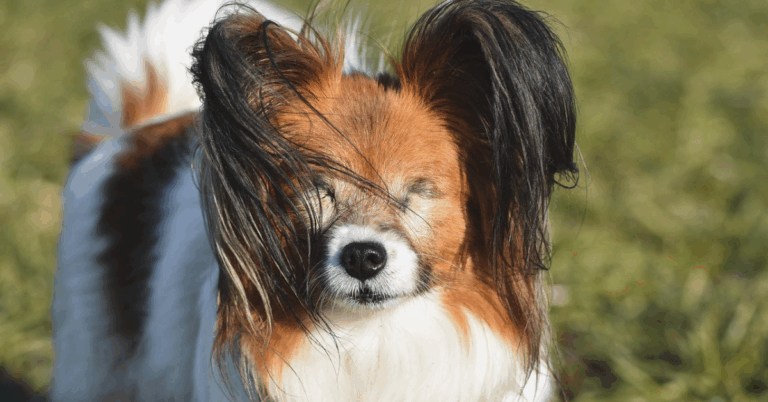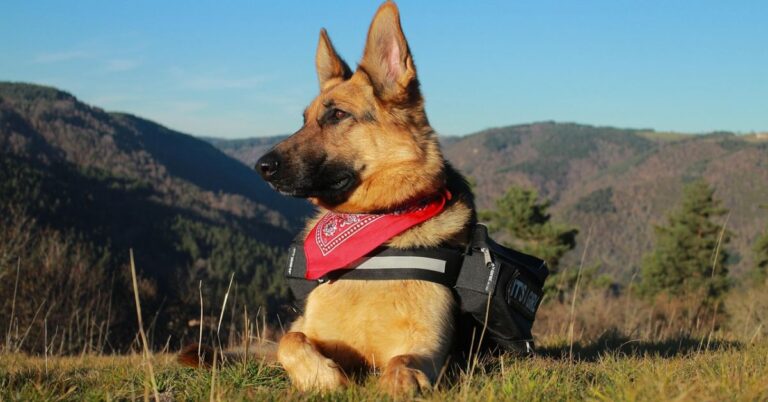What It Means When Your Dog Doesn’t Lick You

It’s natural to wonder why your dog doesn’t lick you, especially when it’s often seen as a sign of affection. But dogs, like people, express love in different ways based on past experiences and unique preferences. Understanding what may be causing a lack of licking behavior for expressing affection can help you connect with your dog in other meaningful ways.
Why Dogs Lick Objects

Dogs often lick objects as a way to explore their environment. Licking can help them gather information about scents and textures but it might also be a coping mechanism for anxiety or boredom. Additionally, some dogs lick objects due to underlying medical conditions, such as gastrointestinal issues, that compel them to engage in repetitive behaviors.
Seeking Attention

Sometimes, licking is a way for dogs to get your attention. If your dog notices that licking an object leads to you interacting with them—whether you laugh, talk to them, or even tell them to stop—they may continue the behavior to keep you engaged. It’s their playful way of saying, “Look at me!”
Your Dog’s Personal Boundaries

Unfortunately, not every dog uses their tongue to show affection. Some prefer physical closeness, like resting near you or leaning on your legs. These quieter actions are just as meaningful and indicate that your dog feels safe and connected, even without licking as part of their routine.
Previous Training Influence

In the event that a dog has previously experienced discouragement from licking, they could stop doing so. They may have been trained not to lick by prior owners if it was seen to be bothersome. Dogs are quick learners, so if you have to retrain them to pick up a new behavior, it could stick.
Unfamiliar Tastes

Certain lotions, perfumes, or products can affect how your skin tastes to your dog. If they usually love licking you but suddenly avoid it, the unfamiliar taste might be the reason because it repulses them. Switching up these products might help them return to their usual affectionate licks.
Lack of Licking Behavior Learned

Some dogs aren’t naturally inclined to lick if they don’t learn it early on. Puppies often pick up licking behaviors from their mother, but if your dog wasn’t familiarized to that, they may not use licking as a form of communication. It’s just something they skipped growing up, and it is not a cause of worry or concern.
Physical Discomfort

Dental issues or other oral discomforts could be another reason why your dog avoids licking. Just like us, dogs can feel pain in their mouths from infection or discomfort that discourages behaviors like licking. If this seems sudden, it might be worth getting a vet’s opinion to make sure everything is fine.
Health Concerns

When a dog doesn’t feel well, it’s common for them to act differently to how they usually do. Health problems like allergies or gastrointestinal distress that directly affect their mouth might make them avoid licking. Checking in with a vet can help determine if something more is affecting your dog’s behavior.
Respect for Your Preferences

Because they are such keen observers, dogs frequently pick up on their owners’ pet peeves. They may cease trying to lick you entirely if you’ve previously shown them that you’re uninterested in them or have gone away. Dogs learn fast what acts are acceptable and unacceptable because they desire to please their owners.
Sensitivity to Stress

Changes in your pup’s routine or heightened stress levels can make your dog less likely to engage in physical displays of affection like licking. When a dog is anxious, they might retreat from behaviors that involve close contact. Recognizing this can help you create a calmer environment that may encourage more bonding.
Different Instincts

Some breeds are simply less likely to lick than others. Dogs bred for independence, such as working or hunting breeds, may not have the same instinct to lick as a way of showing affection. Their affection may be more subtle, shown through companionship and proximity rather than through licking behaviors.
Age-Related Changes

As dogs age, their behaviors change, and licking may become less frequent. Older dogs tend to conserve energy, and licking might seem like a less important behavior to them as they focus more on comfort and relaxation. This is a natural part of aging and nothing to be concerned about.
Licking Other Objects

If your dog tends to lick toys, blankets, or other objects more than people, this could be their way of relieving stress or engaging with their environment. Some dogs find comfort in licking items around the house rather than humans, which is a perfectly normal behavior.
Self Grooming

Licking is a natural part of a dog’s grooming routine. They often lick themselves to clean their fur or remove debris. In some cases, they might just be more focused on self-care than on licking you. This grooming habit might also extend to licking other pets in the household, leaving you out of the routine.
Other Ways to Show Affection

There are more ways your dog shows love; licking isn’t the only way. Some may cuddle, wag their tails enthusiastically, bark uniquely, or follow you everywhere. These behaviors are equally valid expressions of love, and focusing on them will help you see that your dog is just as affectionate, even without licking.





